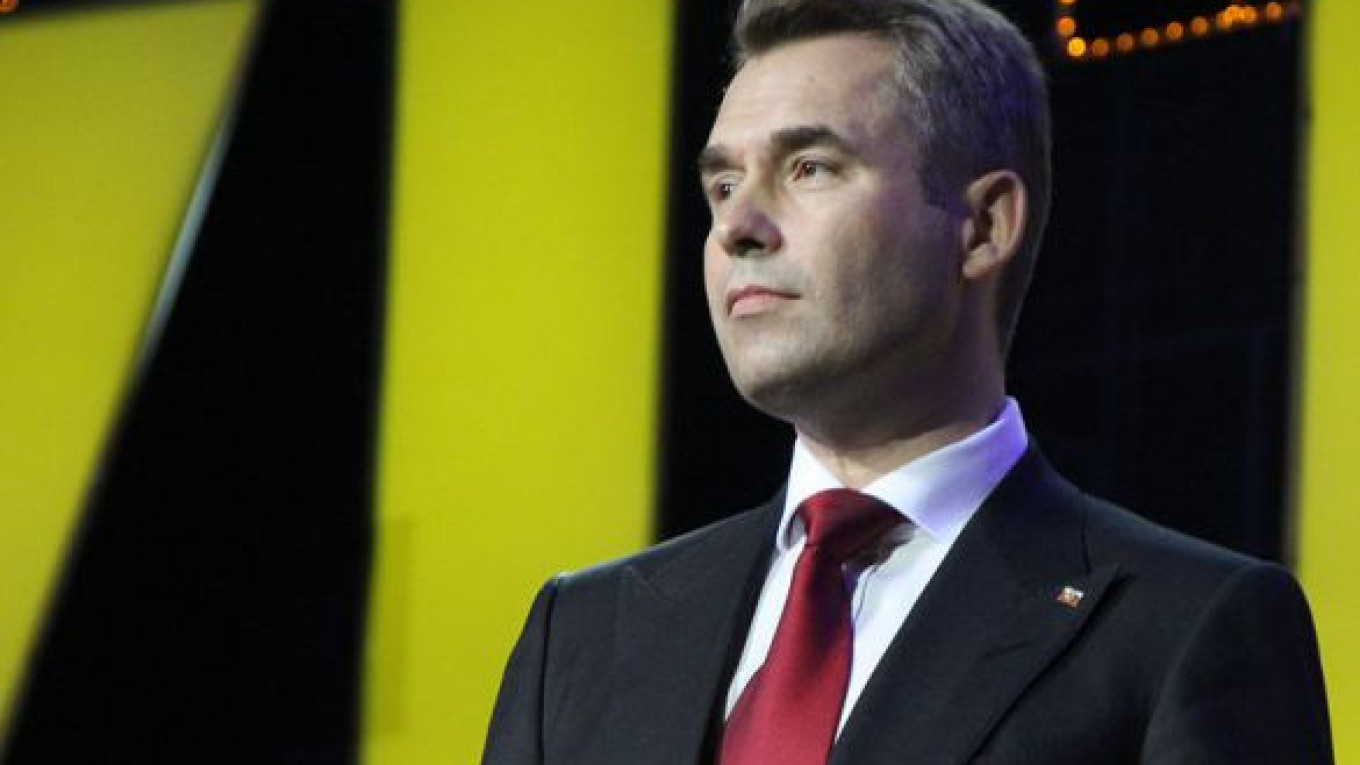The official at the center of Russia's controversial ban on U.S. adoptions struck back at critics on Thursday, saying "pedophiles" were his most strident detractors and that journalists who accuse him of downplaying child abuse in Russia for political reasons are "either blind or dumb."
Children's ombudsman Pavel Astakhov also revealed "new evidence" that he said implicated U.S. parents Laura and Alan Shatto in the death of their adoptive Russian toddler last month.
Astakhov quoted a Texas police official as saying the death of 3-year-old Max Shatto "doesn't look natural" and asserted that Alan Shatto had confessed to giving Max the antipsychotic drug Risperdal because the boy was hyperactive and "refused to obey" his American parents.
In Astakhov's retelling, Shatto said Max's behavioral issues were the result of his time spent in an orphanage in the Pskov region, as well as "abuse" by the Russian representative of the Gladney Center for Adoption, the Texas-based agency that arranged his adoption.
It was not immediately clear when or to whom the police official and Shatto made these comments, which appeared on the , and Astakhov did not answer a telephone request for comment on Thursday evening.
The official, Sergeant Gary Duesler, spokesman for the Ector County Sheriff's Office, has refused to publicly speculate on the cause of Max's death and repeatedly told reporters that the investigation is ongoing, no arrests have been made, and the autopsy report is still pending.
Shatto lawyer Michael J. Brown confirmed that Max had been taking doctor-prescribed medication for hyperactivity but that the Shattos don't believe they had anything to do with his death on Jan. 21, The Associated Press Thursday.
He also denied that the couple killed their son. The Shattos "didn't kill anybody," Brown said.
A woman who picked up the phone at the number listed for the Gladney on the government's website hung up immediately after a reporter asked whether he had indeed reached the right adoptions agency.
Nobody returned a voice message later left on an answering machine at the same number.
Astakhov appeared to save his heaviest ammunition for critics, who have accused him of politicizing Shatto's death to shame the United States and justify the Jan. 1 ban on U.S. adoptions
"Pedophiles want my resignation most of all because nobody has done more to fight pedophiles than we have," Astakhov declared, adding that he had the support of President Vladimir Putin and would not resign, media reported.
An promoted by veteran opposition leader Boris Nemtsov asking Putin to fire Astakhov had gathered almost 10,000 signatures as of .
American parents have adopted about 60,000 Russian children in the past two decades. Twenty have died, according to the provocatively named government website Adoption-killers.ru, which Astakhov's office launched Wednesday.
By comparison, up to 300 orphans entrusted to Russian families die every year, according to State Duma Deputy Yelena Mizulina, head of the Duma's Committee on Family, Women and Children, reported last week.
Such figures have fueled accusations that Astakhov, a close Putin ally, is emphasizing U.S. deaths for political reasons, a charge he denied. "Those who write that Astakhov doesn't talk about the deaths of children in Russia — my friends, you're either blind or dumb," he said, .
Astakhov also said he was skeptical about bloggers' that organizers of a march in support of the adoptions ban are recruiting participants with . The ostensibly grassroots demonstration is scheduled for Saturday in downtown Moscow.
Contact the author at j.earle@imedia.ru
Related articles:
A Message from The Moscow Times:
Dear readers,
We are facing unprecedented challenges. Russia's Prosecutor General's Office has designated The Moscow Times as an "undesirable" organization, criminalizing our work and putting our staff at risk of prosecution. This follows our earlier unjust labeling as a "foreign agent."
These actions are direct attempts to silence independent journalism in Russia. The authorities claim our work "discredits the decisions of the Russian leadership." We see things differently: we strive to provide accurate, unbiased reporting on Russia.
We, the journalists of The Moscow Times, refuse to be silenced. But to continue our work, we need your help.
Your support, no matter how small, makes a world of difference. If you can, please support us monthly starting from just $2. It's quick to set up, and every contribution makes a significant impact.
By supporting The Moscow Times, you're defending open, independent journalism in the face of repression. Thank you for standing with us.
Remind me later.


